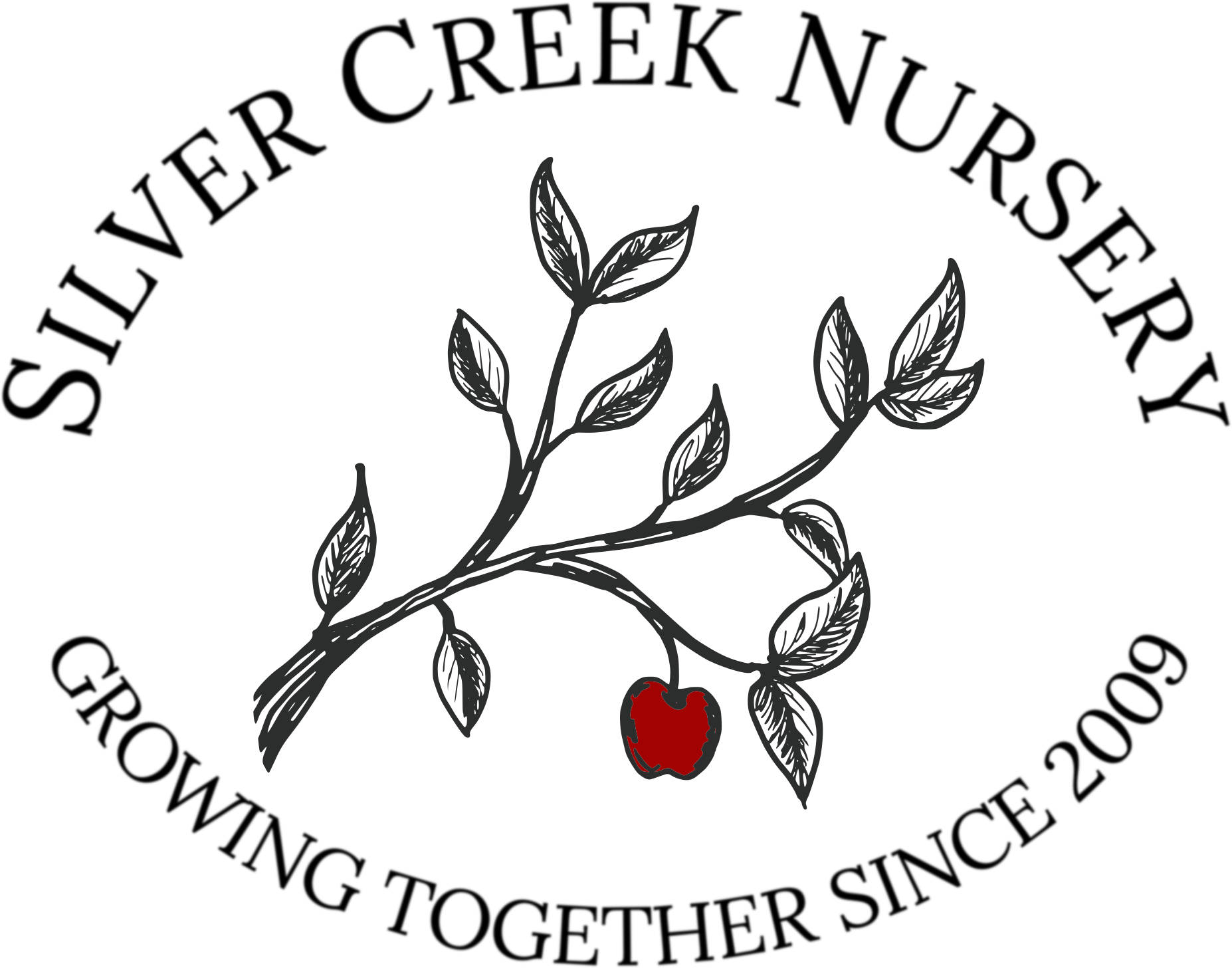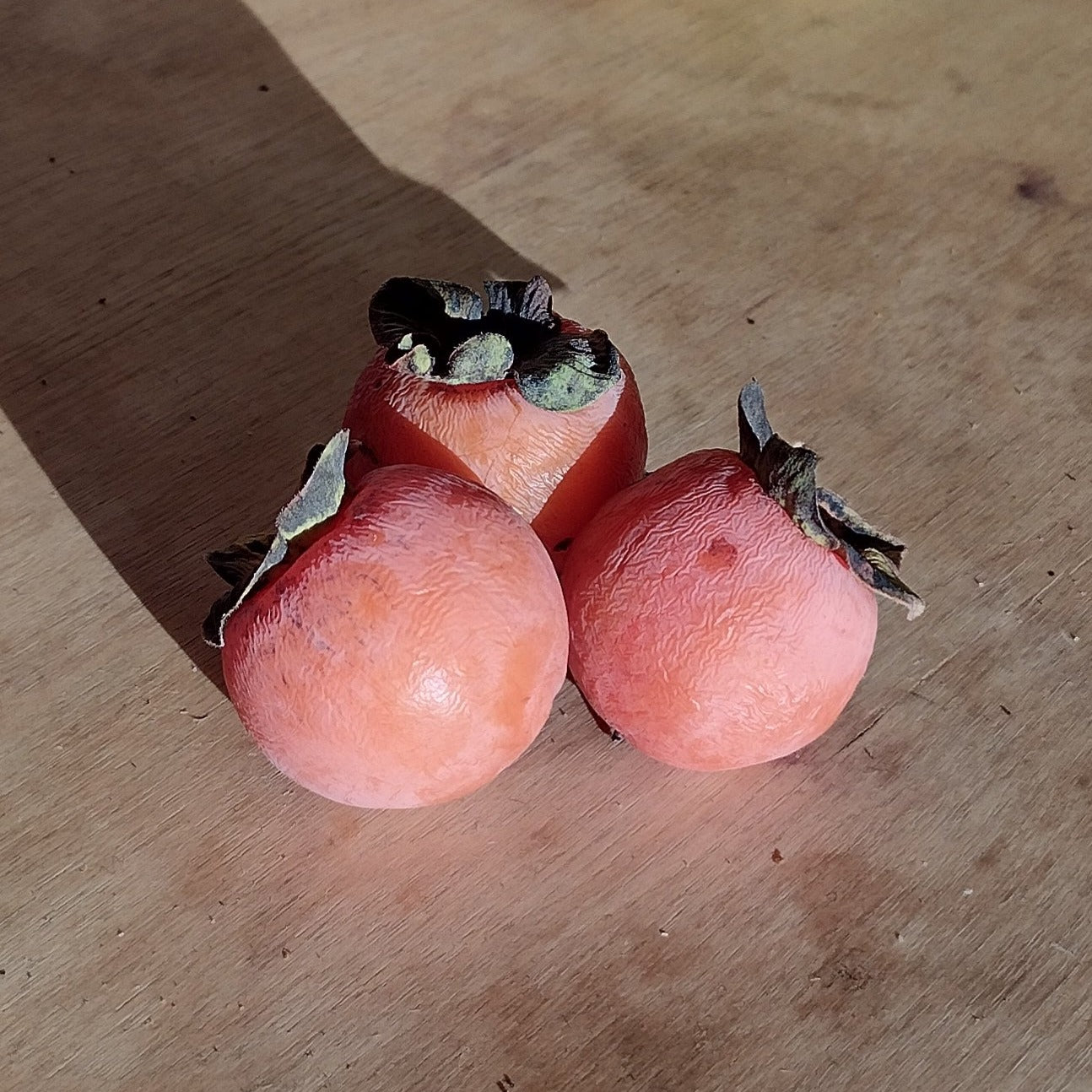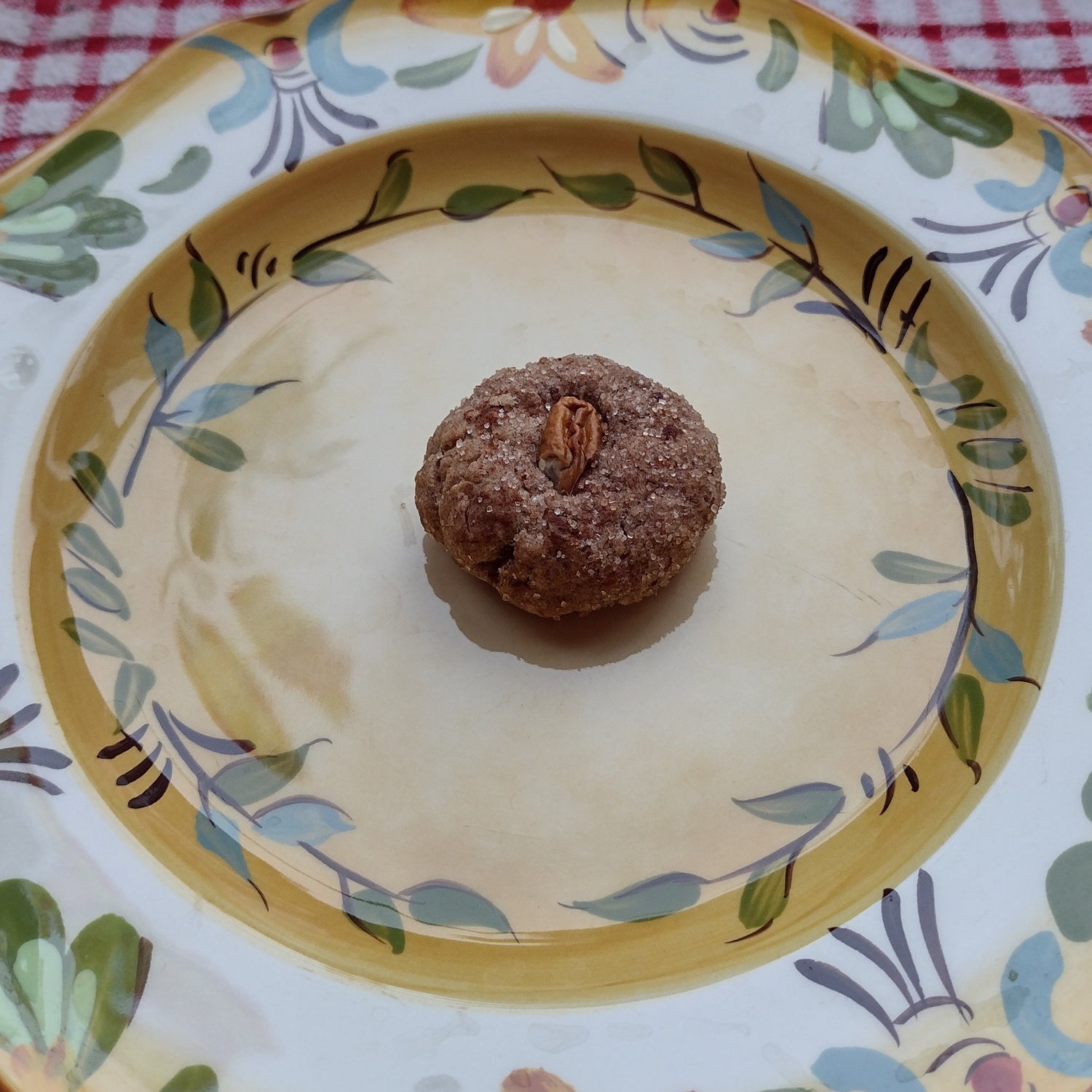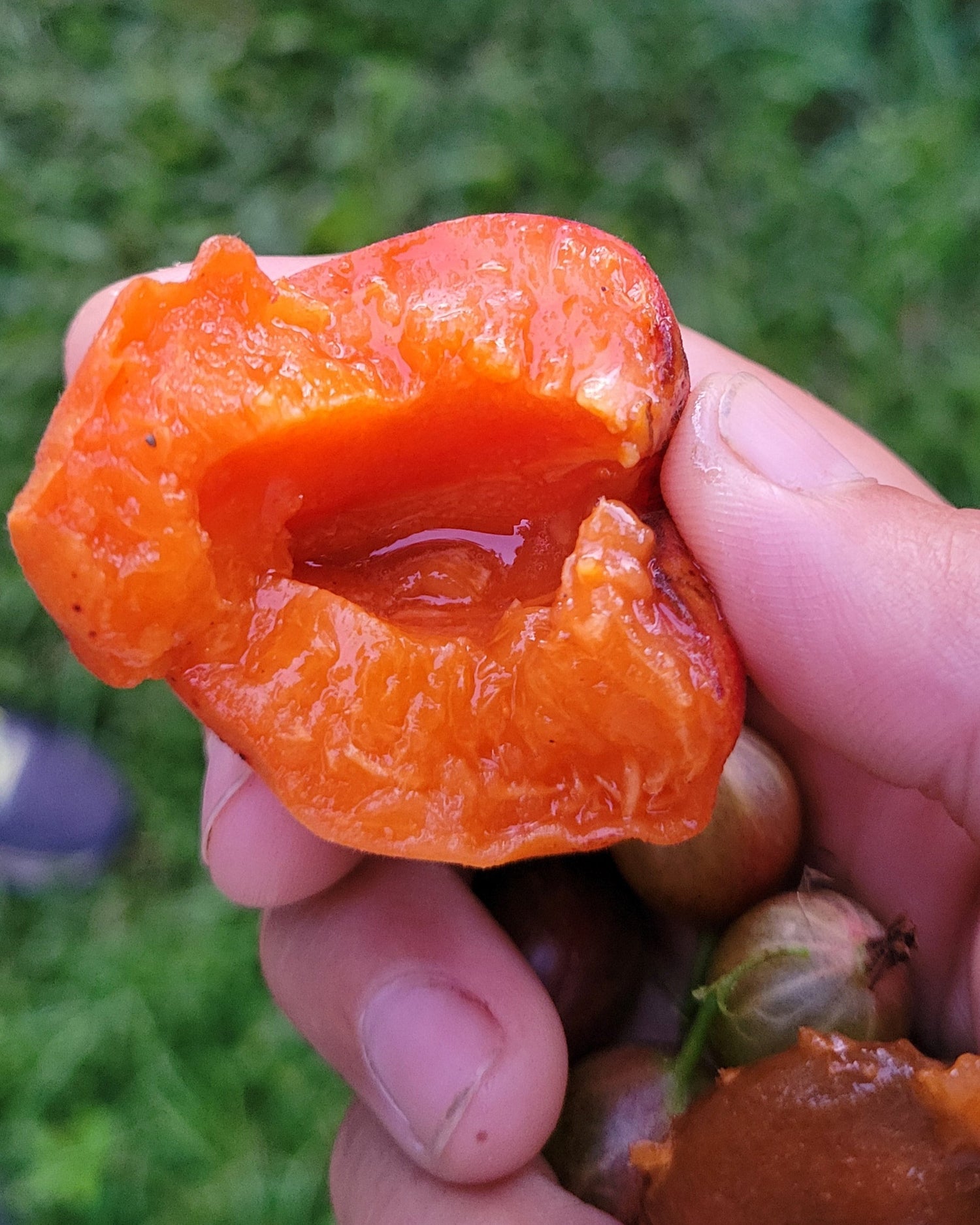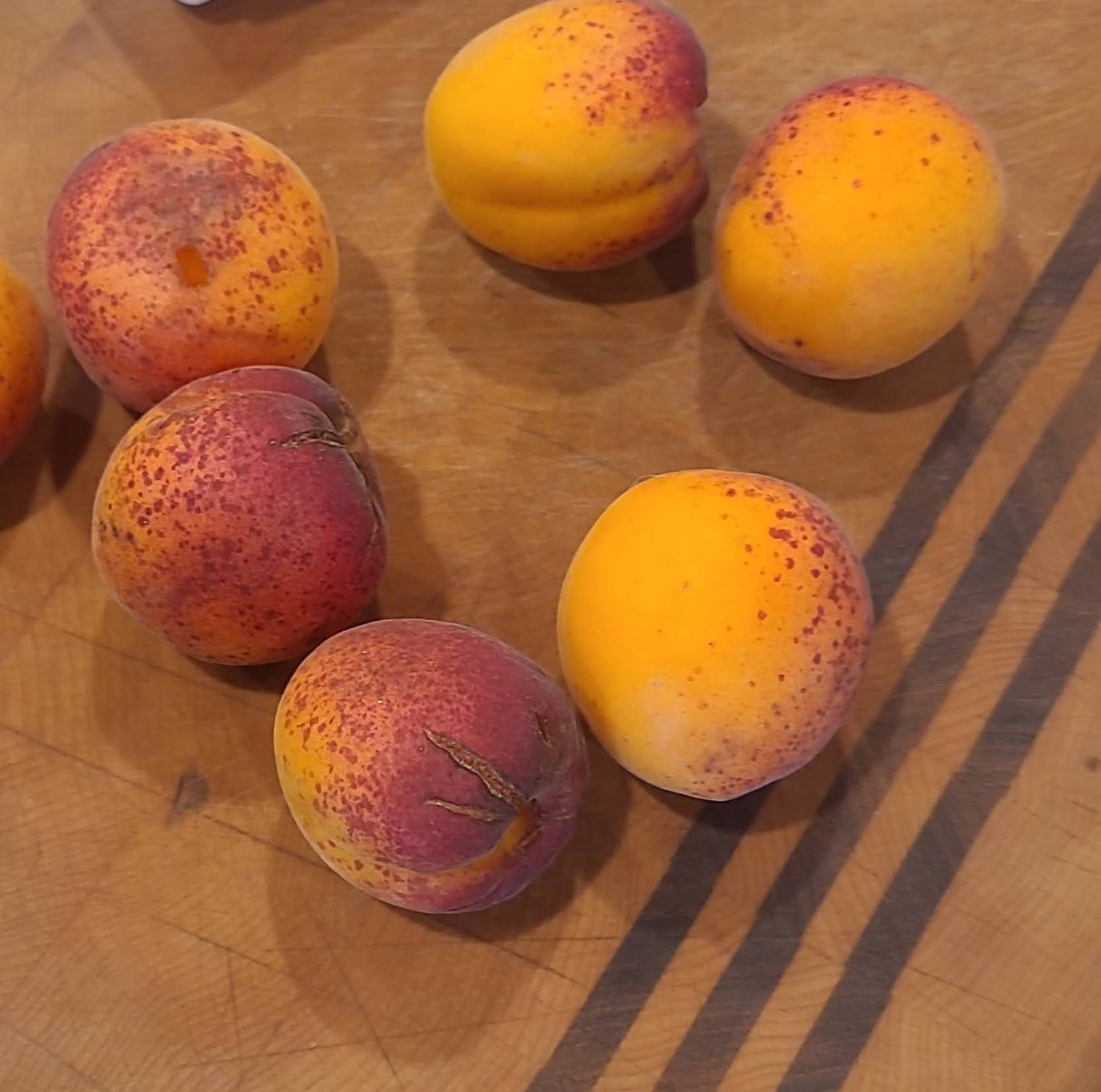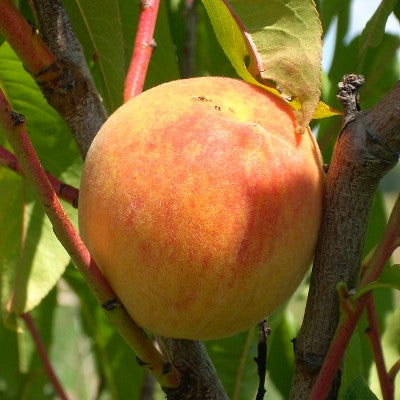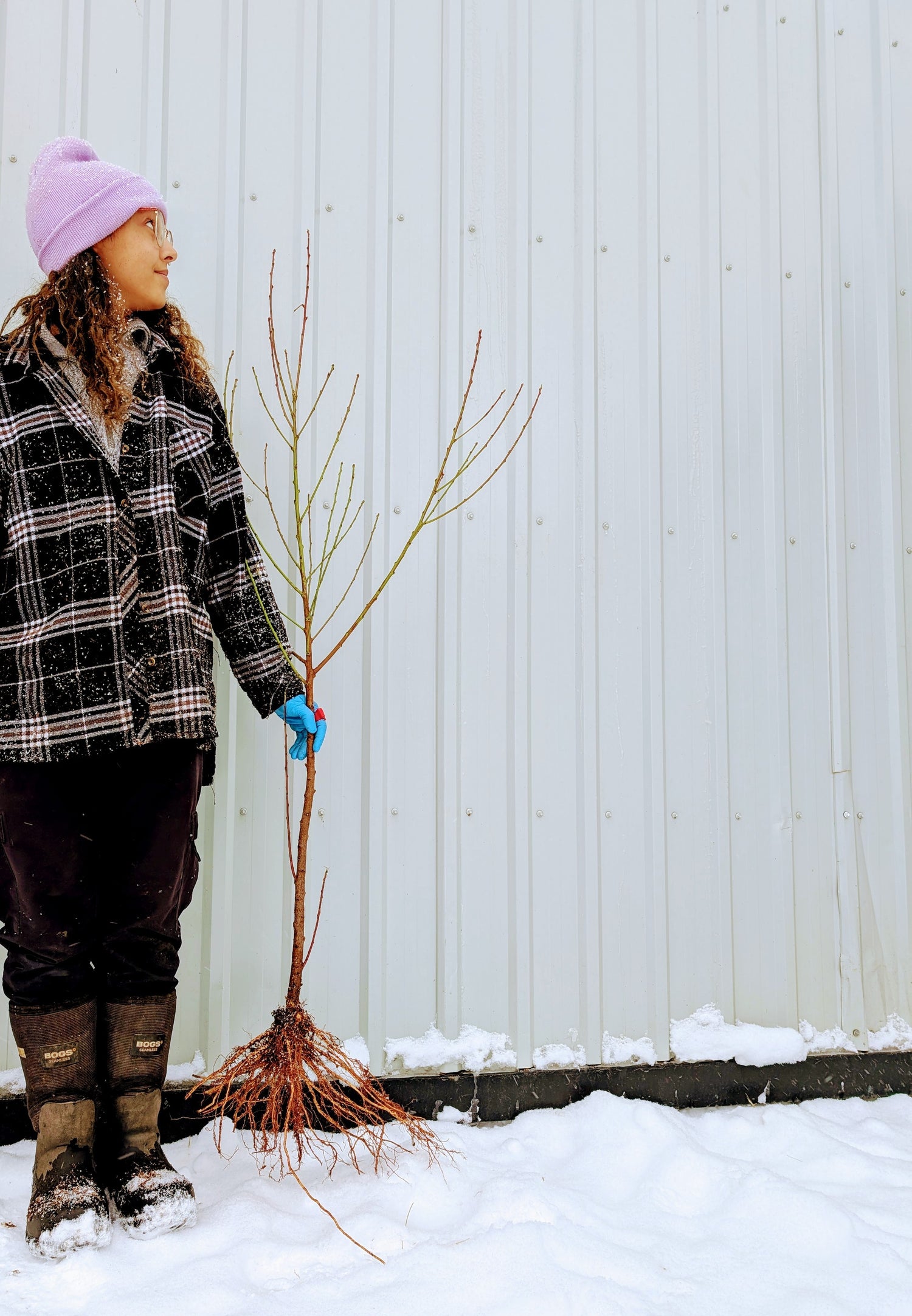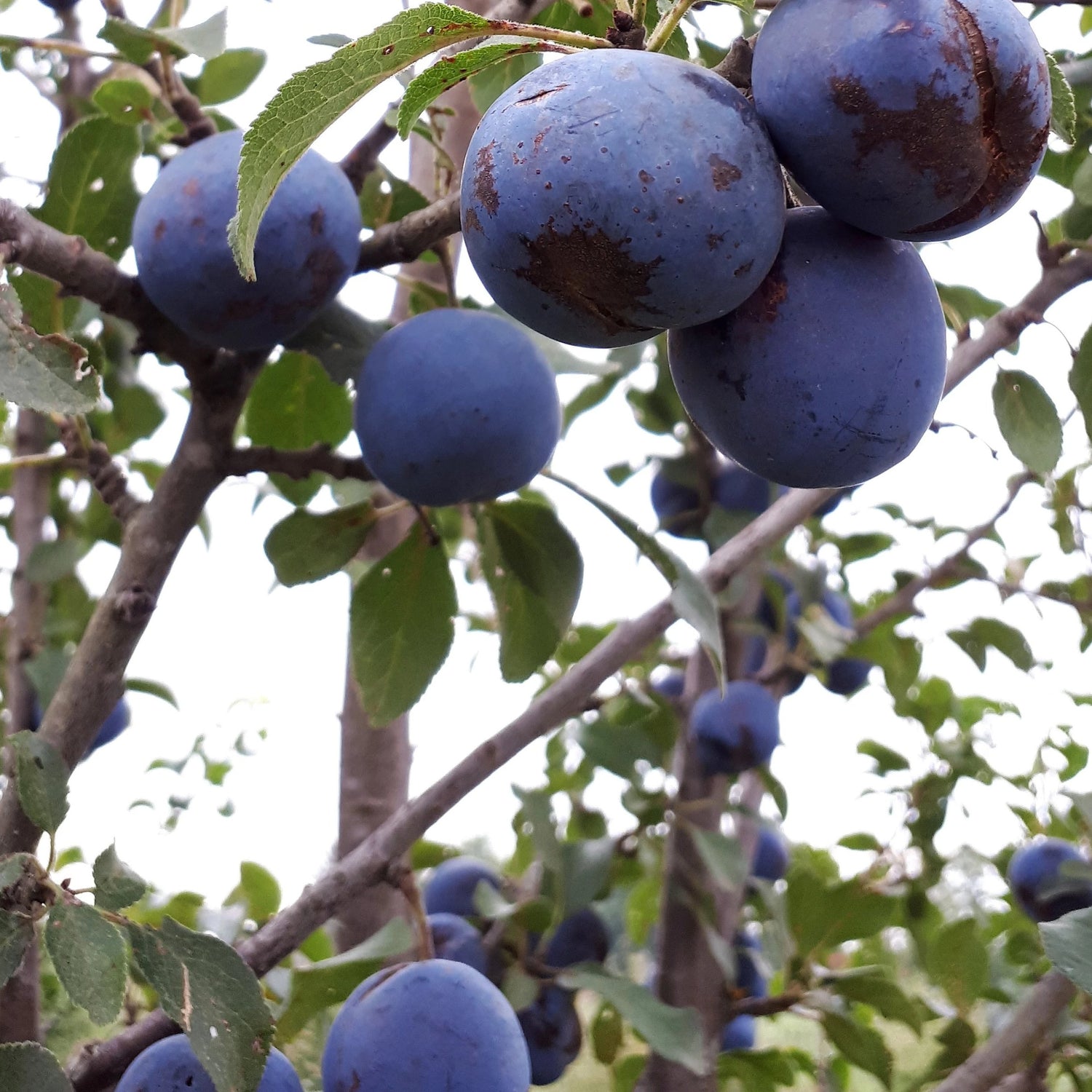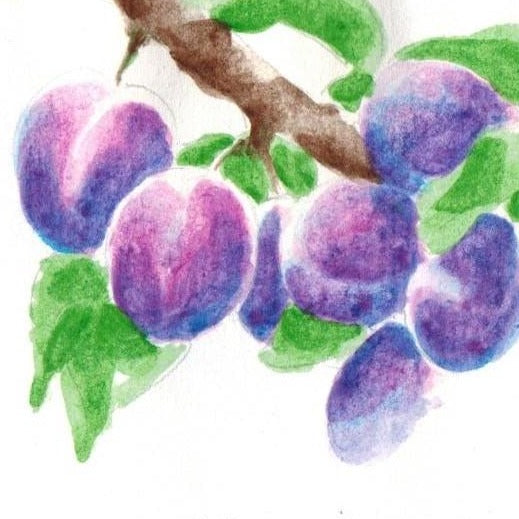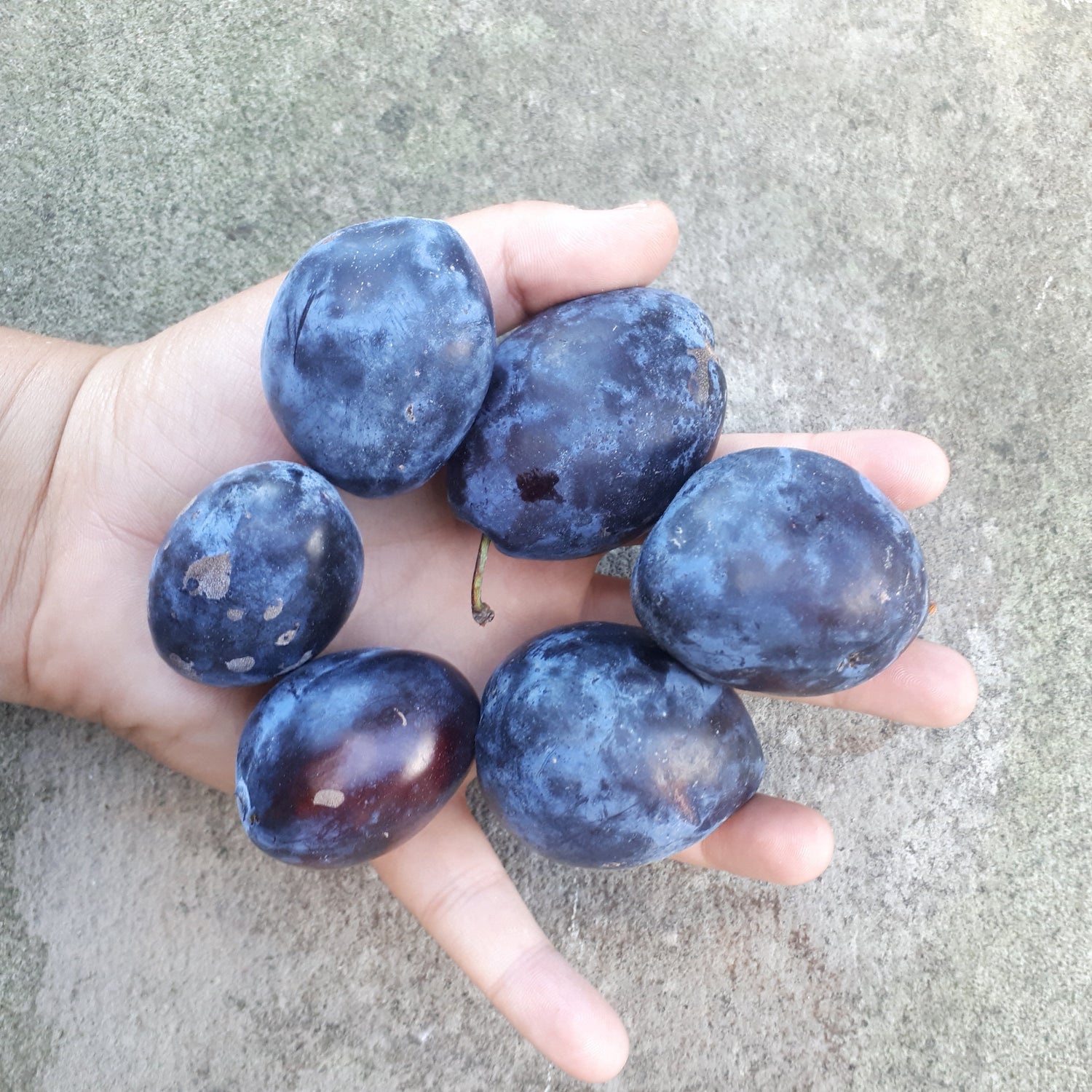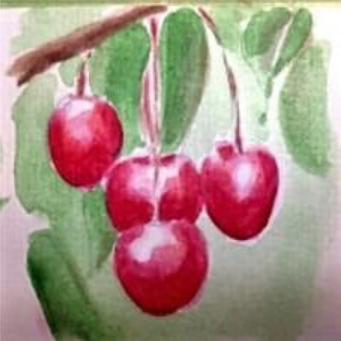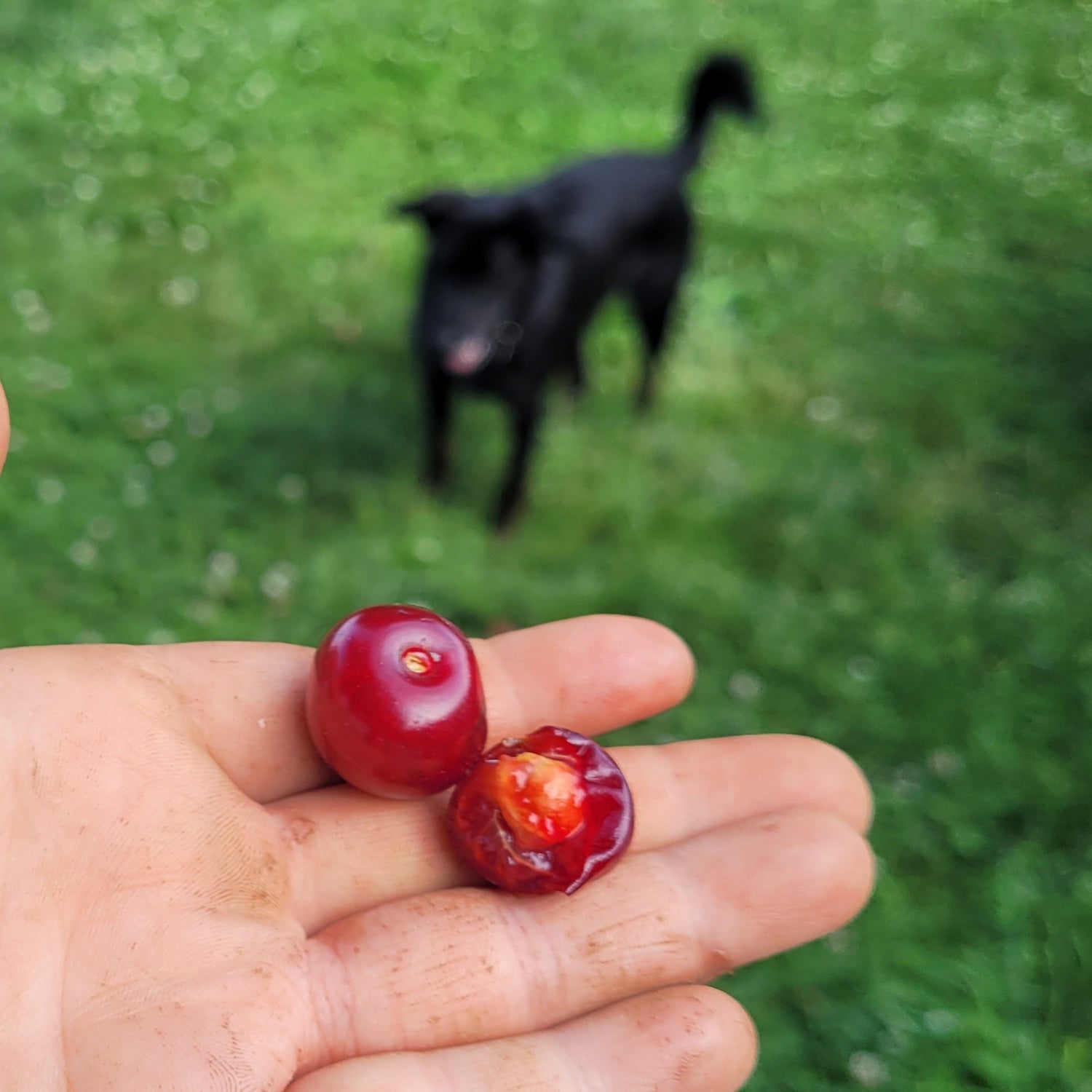Fruit Tree Seedlings (ungrafted)
Let's get a little more diverse! We are happy to see a growing interest in folks growing seedlings! They are an excellent way to increase diversity for both nature and your palate!
Seedling fruits may share some characteristics with their mother plant but there will be natural variation creating a unique plant with every seed, as unique as the differences between you and me. Remember when planting seedlings it's best to plant a few (2-3) for pollination. They typically take longer to come into bearing compared to grafted stock too.
Some species (eg. Prunus) stay fairly close to their mother tree, while others (eg. Malus) will be vary significantly.
Sort by:
30 products
30 products
Species: Diospyros virginiana
History: Native to the southeastern and central areas of the United States, American Persimmon has had a long history of cultivation. The word 'persimmon' is an Anglicized version of the words 'putchamin,' 'pasiminan,' or 'pessamin,' which all mean 'dried fruit' in various Algonquin dialects, reflecting the fruits' usage. It is also common in southern states to trick the unwary into eating the unripe fruit which has an incredibly astringent flavour. Other historical uses for the American Persimmon include turning the seeds into buttons during the American Civil War and using the wood to make items such as pool cues and golf clubs.
Why We Grow It: This unique fruit tree produces a succulently sweet orange fruit that must be extremely ripe before you can eat it. Although it ripens in the summer, the fruit can withstand freezing and hang onto the tree until December. The fruit can be used to make a variety of sweet and savoury dishes and are also very popular among wildlife. Steph has found them great for baking into sweets such as tarts or the pecan and persimmon cookies pictured here!
Species: Prunus armeniaca
History: These seedlings are grown from local Ontario apricot seeds we collected.
Why We Grow It: We are always happy to promote greater biodiversity and growing your own seedlings is a great way to get something unique! Apricots tend to stay fairly true to type so odds are the resulting fruit will be good for fresh eating. After seven years or so, the first of our seedlings have fruited and the fruit is excellent!
If you prefer the certainty of named varieties, these seedlings would also be good for feeding wildlife or planting along fence lines.
Species: Prunus persica
History: These seedlings are grown from Coralstar seeds collected from mother trees growing in Ontario. Coralstar was developed through the Fruit Acres Stellar Peach Breeding Program.
Why We Grow It: Seedling fruit trees are a great way to add some diversity and mystery to your garden or orchard! We expect that seedling peaches will be even hardier trees than their parents! The parent variety, Coralstar, is hardy and great for fresh eating and canning.
Please Note: Since peaches tend to stay true to type more than apples, these seedlings will likely bear a strong resemblance to their parent variety. However, any specific information listed on this page should be taken with a grain of salt as there may be some variation from the parent tree.
Species: Prunus sp
History: These seedlings are grown from Damson plum seeds collected from our orchard. Damson is a plum that may stem from antiquity!
Why We Grow It: Seedling fruit trees are a great way to add some diversity and mystery to your garden or orchard! The parent variety, Damson, produces small blue fruit that are sweet and a little spiced. They are suitable for fresh eating and great for jams, preserves, etc. For a more detailed description, see the Damson page on our website here.
Please Note: Since plums tend to stay true to type more than apples, these seedlings will likely bear a strong resemblance to their parent variety. However, any specific information listed on this page should be taken with a grain of salt as there may be some variation from the parent tree.
Species: Prunus sp
History: These seedlings are grown from plum seeds collected from our orchard. We missed labelling this particular batch, but we know their parents are a blue prune plum similar to German and Late Italian plums.
Why We Grow It: Seedling fruit trees are a great way to add some diversity and mystery to your garden or orchard! The seedling of a classic prune plume like German or Late Italian, these plums will be good for fresh eating but great for baking, drying, etc.
Please Note: Since plums tend to stay true to type more than apples, these seedlings will likely bear a strong resemblance to their parent variety. However, any specific information listed on this page should be taken with a grain of salt as there may be some variation from the parent tree.
Species: Prunus sp
History: These seedlings are grown from German plum seeds collected from our orchard. Likely a few centuries old, German plums are a classic prune style plum that are great for traditional German desserts.
Why We Grow It: Seedling fruit trees are a great way to add some diversity and mystery to your garden or orchard! The parent of this variety, German plum, is sweet and aromatic. It is good for eating fresh and great for drying or baking. For a more detailed description, see the German plum page on our website here.
Please Note: Since plums tend to stay true to type more than apples, these seedlings will likely bear a strong resemblance to their parent variety. However, any specific information listed on this page should be taken with a grain of salt as there may be some variation from the parent tree.
Species: Morus sp
History: Grandpa Harold mulberries are named in memory of Steph's grandfather, whose property houses the mulberry tree we collected these cuttings from. The tree came from Steph's father, who collected mulberry seeds from a tree near Hawkesville and gave one of the resulting seedlings to Grandpa Harold. The tree has provided ample fruit for years and now delights Grandpa Harold's great-grandchildren. The cuttings were taken out of sentimental value as the property where it is growing may be sold in the future.
Why We Grow It: Overall Grandpa Harold is a fairly standard mulberry, producing delightfully sweet berries that are great for fresh eating and baking, but its special sentimental value makes it taste that much sweeter.
Species: Prunus persica
History: These seedlings are grown from Harson peach seeds collected from mother trees growing in Ontario. Harson was developed at the AAFC Harrow Research and Development Centre in Ontario and released in 1982.
Why We Grow It: Seedling fruit trees are a great way to add some diversity and mystery to your garden or orchard! We expect that seedling peaches will be even hardier trees than their parents! Harson produces a freestone peach that is great for fresh eating and canning. It is quite similar to Redhaven.
Please Note: Since peaches tend to stay true to type more than apples, these seedlings will likely bear a strong resemblance to their parent variety. However, any specific information listed on this page should be taken with a grain of salt as there may be some variation from the parent tree.
Species: Prunus avium
History: These seedlings are grown from Hedelfingen seeds from sweet cherries sourced in Ontario. First discovered in Germany in 1850, Hedelfingen has become a popular variety in Ontario.
Why We Grow It: Seedling fruit trees are a great way to add some diversity and mystery to your garden or orchard! The parent variety, Hedelfingen, is well-regarded due to its great flavour and later bloom time which makes it more tolerant of late spring frosts.
Please Note: Since sweet cherries tend to stay true to type more than apples, these seedlings will likely bear a strong resemblance to their parent variety. However, any specific information listed on this page should be taken with a grain of salt as there may be some variation from the parent tree.
Species: Prunus cerasus
History: These sour cherry seedlings are grown from Juliet seeds we've collected here at Silver Creek Nursery from our own trees! Juliet, is one of the members of the Romance Series released in 2004 from the University of Saskatchewan.
Why We Grow It: Seedling fruit trees are a great way to add some diversity and mystery to your garden or orchard! The parent variety, Juliet, has a sweet/tart flavour that some enjoy for fresh eating and is great for processing. A naturally dwarfing and bush-like variety. For a full description, see our Juliet page here.
Please Note: Since sour cherries tend to stay true to type more than apples, these seedlings will likely bear a strong resemblance to their parent variety. However, any specific information listed on this page should be taken with a grain of salt as there may be some variation from the parent tree.
Showing 10/30
